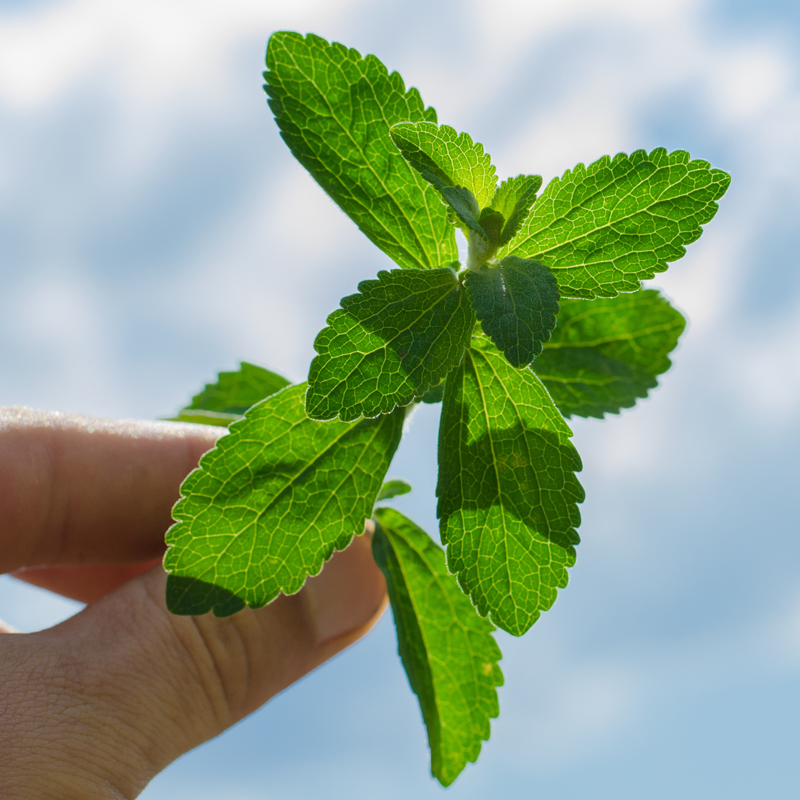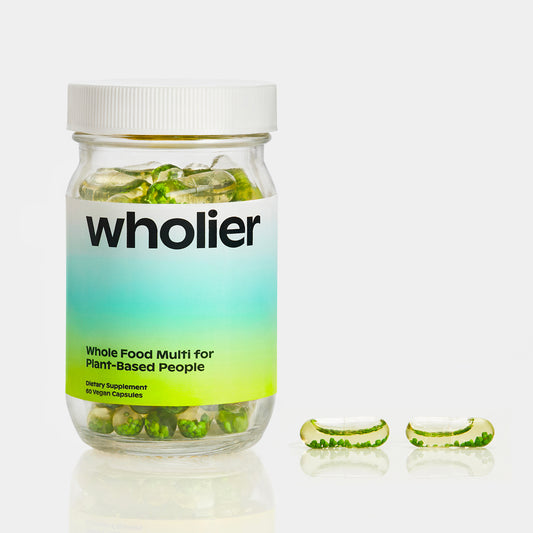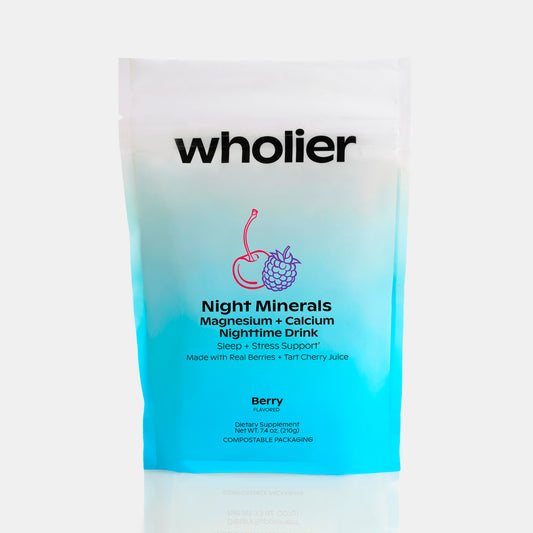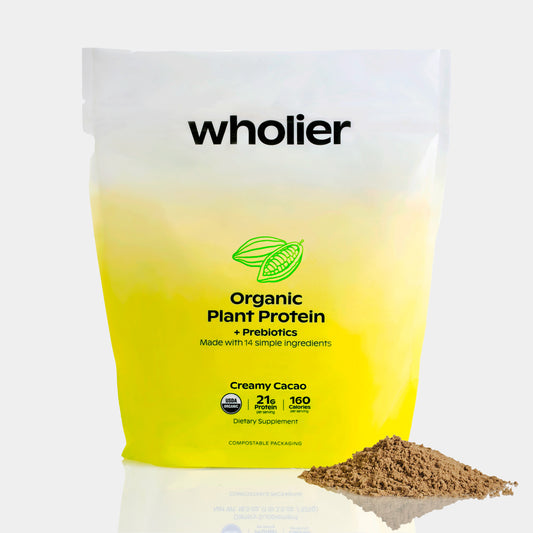
Stevia vs. Monk Fruit – Which is Healthier?
Are you on the hunt for a healthier alternative to sugar? You might want to consider natural sweeteners like stevia and monk fruit. These two options have been gaining popularity in recent years, but which one is better for you? Let's dive deeper into these natural sweeteners.
What Are Stevia and Monk Fruit?
Stevia is derived from the leaves of the stevia plant. The sweetness comes from compounds called steviol glycosides that are extracted using various methods such as chemical solvents or water.(1)
Monk fruit extract, also known as Luo Han Guo, comes from the dried fruit of Siraitia grosvenorii Swingle plant species native to China.(2) Its sweetness derives mainly from mogrosides V (5-10%) with other minor mogrosides making up around 1%.(3)
Taste Preferences: Which One Tastes Better?
One of the most significant factors when it comes down to choosing between these two sweeteners is taste preference. Some people find that stevia has a slightly bitter aftertaste while others don't mind it at all.
On the other hand, monk fruit extract tastes less intense than sugar without any hint of bitterness or sourness.(4)
What Do People Think About Stevia and Monk Fruit?
Stevia has been on the market longer than monk fruit, which means more people are familiar with it. However, some consumers have concerns about how stevia is processed, given that chemical solvents can be involved in its extraction method.
Monk fruit extract is newer to the market and seen as a premium option due to its higher cost. Some people also applaud this sweetener for being non-GMO.(5)
Health Benefits: What Are The Advantages of Stevia and Monk Fruit?
Both natural sweeteners come with health benefits such as having zero calories while not affecting blood sugar levels making them great choices if you're trying to reduce your calorie intake or manage diabetes.
Stevia contains antioxidants that help fight damage from free radicals while also having anti-inflammatory properties.(6) Additionally, one study found that consuming steviol glycoside did not affect glucose metabolism in healthy individuals compared to sucrose consumption.(7)
Similarly, the mogrosides present in monk fruit extracts have been shown to possess antioxidant properties according to research carried out by Chen et al., 2005.(8) Another study showed that mogroside V had potent anti-diabetic effects through insulin secretion stimulation by pancreatic β-cells.(9)
Processing: How Are Stevia and Monk Fruit Processed?
When it comes to processing, some brands of stevia use chemical solvents during extraction. This may leave behind residue and affect the final product's taste or quality. However, there are natural methods such as water or alcohol-based extractions where no chemicals are used. These processes produce "whole-leaf" extracts that contain additional compounds like chlorophyll which give them a greenish brown hue.(10)
Monk fruit extract is typically processed using a water-based method, considered less invasive than other processes. The fruits undergo crushing, pressing & filtering steps with hot-water treatment before spray drying into powder form.(11)
Which One Is Better for You?
Choosing between these two sweeteners ultimately depends on your preferences! If you're okay with bitterness in stevia and prefer an economical option then it might be perfect for you. However, if you're looking for something cleaner tasting without any aftertaste; monk fruit could be a great alternative even though it costs slightly more.
Stevia and monk fruit are both excellent alternatives to traditional sugar thanks to their zero-calorie content while not affecting blood sugar levels making them suitable options for those managing diabetes or trying to reduce calorie intake. While stevia has been around longer and is more widely available, some people have concerns about how it's processed. On the other hand, monk fruit extract is newer to the market and seen as a premium option due to its higher cost but delivers a cleaner taste profile with no bitterness or aftertaste.
Both natural sweeteners come with their unique health benefits such as antioxidant properties that help fight damage from free radicals and anti-inflammatory effects in stevia while mogrosides present in monk fruit extracts possess anti-diabetic effects. While stevia has been around longer and is more widely available, some people have concerns about how it's processed. Monk fruit extract is newer to the market and seen as a premium option due to its higher cost but delivers a cleaner taste profile with no bitterness or aftertaste.
When choosing between these two natural sweeteners, remember to consider your personal preferences and check out different brands' extraction methods for quality assurance. Whether you choose stevia or monk fruit extract, both options are healthier alternatives compared to traditional sugar or artificial sweeteners when consumed in moderation.
Sources:
(1) Geuns JM (2003). "Stevioside". Phytochemistry. 64 (5): 913–21.
(2) Pongprayoon U et al., (2004) Novel Dammarane Glycosides from Siraitia grosvenorii
(3) JECFA Evaluation of Certain Food Additives: Forty-ninth Report of the Joint FAO/WHO Expert Committee on Food Additives WHO Technical Report Series, No. 896
(4) Cheng Y & Ling W (2019) Beyond Sweetness—The Potential Health Benefits of Monk Fruit Sweeteners, Frontiers in Nutrition, vol6 pg Article Number:73
(5) Whole Foods Market - Non-GMO Project Verified and Organic Products Available Now
(6) Jeong, H.J., & Jeong J.B (2016). Stevia rebaudiana as functional food: A review,J Med Food;19(10), pp931-7.
(7) Tey SL et al., Effects of stevia extract on postprandial glucose response, satiety and energy intake: a three-arm crossover trial,Nutr Diabetes;13(8),pp1-11.
(8) Chen XQ et al.(2005). Antioxidant properties and phenolic compounds of sweet tea (Lithocarpus polystachyus Rehd)and its fermented products. J Agric Food Chem;53(21), pp 8162–8.
(9) Wang Y et al., Antidiabetic effect of a newly identified component from lo han kuo, Siraitia grosvenorii Swingle fruits extract in KK-Ay mice[J]. Eur J Pharmacol. 2006 May 24;536(3):243-50.
(10) Gardana C et al., Metabolism of stevioside by healthy subjects, Exp Biol Med (Maywood);228:1287–93
(11) Zhang QJ & Yang XH,(2014). The functional constituents and extraction technologies of monk fruit juice: A review.Chinese Journal Of Natural Medicines vol12 pg801-814






